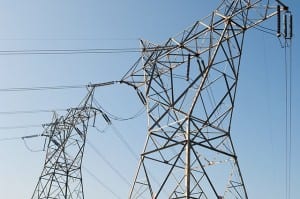Europe’s steady march towards decarbonisation and the retirement of all coal-fired generating capacity continues apace this month, as both Austria and Sweden announced the closure of their last coal plants – with Sweden doing so two years ahead of schedule.
Swedish power utility Stockholm Exergi announced last week that it had closed down the coal-fired cogeneration plant KVV6 at Värtaverket which used both coal and biofuels to produce heat and electricity.
Stockholm Exergi had already shuttered one of the two boilers at KVV6 before the winter of 2019/2020 while the second was turned into a power reserve. Because of the country’s mild winter the company went ahead and shuttered the coal-fired power plant for good, closing the country’s last coal plant which had been running since 1989.
“Since Stockholm was almost totally fossil-dependent 30-40 years ago, we have made enormous changes and now we are taking the step away from carbon dependency and continuing the journey towards an energy system entirely based on renewable and recycled energy,” said Chief Executive Anders Egelrud.
“We continue to work on the transition to climate neutral solutions, and also solutions to create negative emissions. For here, the researchers agree: we not only need to reduce our emissions down to zero, but also need to develop techniques to specifically reduce carbon dioxide in the atmosphere.”
The closure of KVV6 means that Stockholm Exergi’s CO2 emissions will be cut in half and accomplishes for Sweden its target of closing all coal-fired generating capacity by 2022. The move also means Sweden has become the third European country to entirely eliminate coal from its electricity sector.
“The fact that the coal is now being phased out of the city’s district heating system will be of great benefit to Stockholm’s climate work and it will significantly reduce our emissions,” said Katarina Luhr, the Vice Mayor of Environment and Climate at the City of Stockholm. “It also means that Stockholm can show the way for other cities – towards creating a fossil-free society.
“At the same time, this is not enough, but we must work to become climate positive and start capturing and storing carbon dioxide. I hope Stockholm will be able to lead the way in that area as well.”
The news came hot on the heels of Austria’s largest power provider, Verbund, shutting down the Mellach district heating plant, marking the end of coal-fired generation in Austria.
Generating electricity and heat for the Austrian state of Styria for 34 years, the Mellach plant will be converted to generate electricity from natural gas – though the Austrian Government plans for this to be only for “a short time”, as the country is aiming to be supplied entirely by green electricity by 2030.
“The closure of the last coal-fired power plant is a historic step: Austria is finally getting out of coal from electricity and is taking another step towards phasing out fossil fuels,” said Climate Protection Minister Leonore Gewessler.
“The energy system will be clean, affordable and, above all, safely rebuilt. We are currently spending €10 billion on imports of coal, oil, and gas. I am pleased that with the exit from coal, VERBUND is showing what we can achieve if we create a clean future together.”
“Austria is moving a bit further towards climate neutrality and the economy is once again showing itself to be a strong partner in the fight against climate change,” added Magnus Brunner, State Secretary in the Ministry of Climate Protection.
Both moves were unsurprisingly heralded by environmental groups across Europe.
“With Austria going coal free today it becomes clear that the momentum to leave coal behind has not slowed, despite the significant health and economic challenges we’re facing,” said Kathrin Gutmann, campaign director for Europe Beyond Coal.
“Austria is ending coal burning, while supporting the uptake of renewable energy and the European Green New Deal. This is a great example of the path to healthier, cleaner, and more resilient societies.”
“With Sweden going coal free in the same week as Austria, the downward trajectory of coal in Europe is clear,” Gutmann added a few days later regarding Sweden’s milestone.
“Against the backdrop of the serious health challenges we are currently facing, leaving coal behind in exchange for renewables is the right decision, and will repay us in kind with improved health, climate protection and more resilient economies.”








